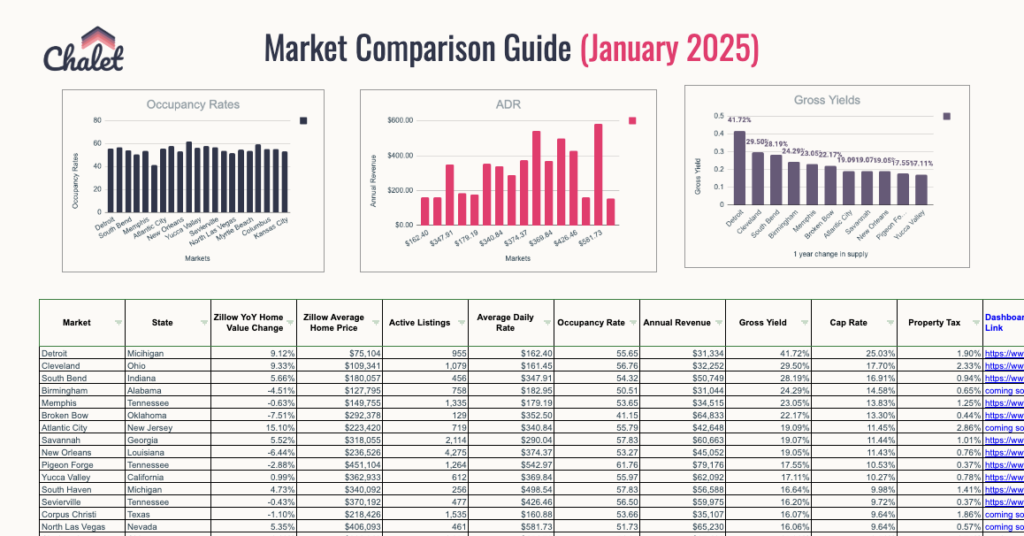As the popularity of short-term rentals, commonly known as Airbnb, continues to rise, so does the scrutiny and regulation from local governments. Oceanside, CA, a coastal gem in Southern California, is no exception. If you are an investor or owner in the short-term rental market in Oceanside, it’s crucial to stay informed about the local regulations that govern your operations. This comprehensive guide will walk you through the key aspects of Oceanside’s short-term rental regulations and provide resources to help you navigate them effectively.
Overview of Short-Term Rentals in Oceanside
Oceanside is known for its picturesque beaches, vibrant cultural scene, and mild climate, making it an attractive destination for tourists. Consequently, the demand for short-term rentals in the area has surged, offering lucrative opportunities for property owners. However, with this increase in popularity, the City of Oceanside has implemented specific regulations to manage the impact of short-term rentals on the community.
Licensing and Permits
To legally operate an Airbnb in Oceanside, property owners must obtain a Short-Term Rental Permit. This permit is essential for ensuring that all short-term rental properties comply with local zoning laws and safety regulations.
Steps to Obtain a Short-Term Rental Permit in Oceanside:
- Application: Complete the short-term rental permit application available on the City of Oceanside’s website.
- Fee: Pay the non-refundable application fee, which varies depending on the type and size of the property.
- Inspection: Schedule and pass a property inspection to ensure compliance with health and safety standards.
- Approval: Once the application and inspection are approved, you will receive your permit, which must be renewed annually.
Zoning Regulations
Oceanside’s zoning laws play a crucial role in determining where short-term rentals can operate. The city is divided into various zoning districts, each with specific rules regarding short-term rentals. Generally, short-term rentals are permitted in residential and mixed-use zones, but there are restrictions to maintain the character of residential neighborhoods.
Key Zoning Restrictions:
- Density Cap: The number of short-term rentals allowed in certain residential zones is capped to prevent oversaturation.
- Proximity Restrictions: There are limits on how close short-term rentals can be to one another to maintain neighborhood integrity.
- Occupancy Limits: The number of guests allowed in a short-term rental property is regulated based on the size and type of the property.
Operational Requirements
In addition to obtaining the necessary permits and complying with zoning laws, Airbnb hosts in Oceanside must adhere to several operational requirements:
- Noise Control: Hosts must ensure that their guests do not disturb the peace and quiet of the neighborhood. This includes setting rules for noise levels, particularly during nighttime hours.
- Trash and Recycling: Hosts are responsible for providing adequate trash and recycling facilities and ensuring that guests dispose of waste properly.
- Parking: Short-term rentals must provide sufficient parking for guests, adhering to local parking regulations to avoid congestion and inconvenience to neighbors.
- Signage: Hosts are required to display their short-term rental permit number on all advertisements and listings.
Top 100 Airbnb Rental Markets

Instantly compare top 100 short-term (Airbnb) rental markets in the US
Tax Obligations
Short-term rental operators in Oceanside must collect and remit Transient Occupancy Tax (TOT) to the city. The current TOT rate is 10%, and it applies to all stays of 30 days or less. Additionally, Airbnb collects and remits TOT on behalf of hosts in many jurisdictions, including Oceanside, making it easier for hosts to comply with this requirement.
How to Comply with TOT Requirements:
- Register for TOT: Register your short-term rental property with the City of Oceanside for TOT purposes.
- Collect TOT: Ensure that the TOT is included in the total price charged to guests.
- Remit TOT: Submit the collected TOT to the city on a quarterly basis.
Enforcement and Penalties
The City of Oceanside actively enforces its short-term rental regulations to ensure compliance and address any issues that arise. Violations of the regulations can result in penalties, including fines and permit revocation. Common violations include operating without a permit, exceeding occupancy limits, and causing noise disturbances.
Steps for Compliance:
- Stay Informed: Regularly check the City of Oceanside’s website for updates on short-term rental regulations.
- Educate Guests: Provide clear guidelines to your guests regarding house rules, noise control, and local laws.
- Maintain Records: Keep detailed records of your bookings, guest communications, and tax remittances.
Resources for Oceanside Airbnb Hosts
To assist you in navigating the complex landscape of short-term rental regulations in Oceanside, here are some valuable resources:
- City of Oceanside Short-Term Rental Page: Oceanside STR Information
- Short-Term Rental Permit Application: Oceanside STR Permit Application
- Transient Occupancy Tax Information: Oceanside TOT Information
- Airbnb Help Center: Airbnb Resources for Hosts
Conclusion
Operating a short-term rental in Oceanside, CA, can be a rewarding venture, but it comes with responsibilities. By understanding and complying with the local regulations, you can ensure a smooth and successful experience for both you and your guests. Stay informed, stay compliant, and enjoy the benefits of being an Airbnb host in this beautiful coastal city.
References:
- City of Oceanside. (n.d.). Short-Term Rentals. Retrieved from Oceanside STR Information.
- City of Oceanside. (n.d.). Transient Occupancy Tax. Retrieved from Oceanside TOT Information.
- Airbnb. (n.d.). Help Center. Retrieved from Airbnb Resources for Hosts.

